How much should a loaf of bread cost?
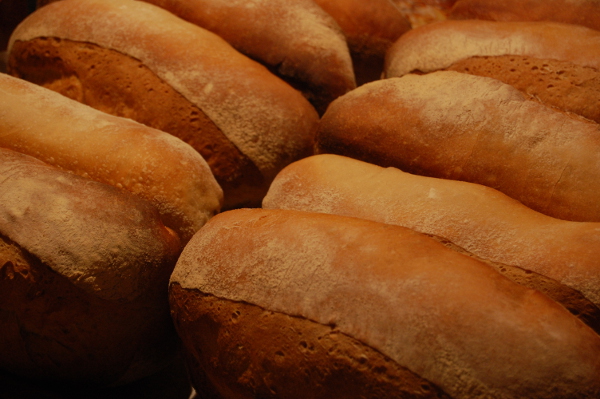
You can now get white sliced bread in supermarkets for around 50p a loaf; or you can get hand-baked, organic loaves from independent bakers for around £3.50. We can also bake our own bread. What’s the best option, do you think?
Have a look at this (for non-UK readers, the Daily Mail is a rag full of celebrity gossip and corporate propaganda). These ‘supermarket price wars’ are great for ordinary people, because they get cheap bread, right? But it also involves:
-
imported grain grown in environmentally-damaging monocultures, soaked in pesticides
-
bread with virtually no nutritional value (see here)
-
corporate control of our food supply
-
putting small, organic farmers out of business
-
a gargantuan, mechanised food system that doesn’t employ many people, so it puts lots of other people out of work too

The corporate meat industry also involves cruelty as well as all the above; and dairy farming – the article above also says: ‘Last month supermarket price wars were having a devastating impact on dairy farmers, as the cost of a pint of milk was reduced to just 22p.’ 22p!!! What will the farmer get per pint at that price? Almost nothing, which means that small dairy farmers will go out of business, the dairy industry (and every other industry) will consolidate in the hands of giant agribusiness, with associated job losses, strenghtening of the corporate sector, environmental damage and bad food.
Is this what we want to support? No, of course not. So what’s the alternative? I suggest that either:
-
we pay £3.50 for a real loaf of bread
-
we make your own bread, or
-
we start a revolution to overthrow the corporate system, so that wages, rents and prices are fair
Let’s leave 3 aside for now – but only for now. Let’s talk more about it another time. For now, let’s concentrate on the price of bread.

I joined a radical politics reading group last year in London, and had a conversation with an academic running the group, who was outraged that anyone should charge £3.50 for a loaf, and told me that she shopped in Tesco, because it’s cheaper and because she wants to support low-paid Tesco workers. Her approach supports the corporate system and hurts workers, and I didn’t go back to her reading group. In the absence of an immediate revolution, then all we can do is try to change things incrementally – which means not giving the corporate sector our money, which means buying things from non-corporate businesses, or producing things ourselves.
For me, the ideal end point of this is that no-one buys from supermarkets / the corporate sector any more; everyone is either self-employed, or works for a small, ideally co-operative business, providing things for their local community. Wages (as well as prices) are higher, so that workers can afford to buy from other local businesses too. Everyone’s happy – especially ex-corporate workers who now actually enjoy their work and get paid reasonably.
Two questions. First – is there another way to do it? And secondly – if not, how do we start that process? The difficulty is that there are lots of people on low wages who can’t afford it. I suggest that the start point is with the middle classes – support your local baker and pay £3.50 for a loaf. If it means cutting out one city break to Barcelona or Prague per year, so be it (actually, that’s a bonus, as it will reduce your carbon emissions too).

While I’m at it, am I allowed to address the working class too, or is that patronising and out of bounds? My family live in a place very near to the bottom of the social deprivation index, but where lots of money is spent on trainers, booze, fags and flat-screen TVs, but not organic food. It might be good if that changed, and of course that would provide more local job opportunities too. And anyone, whatever their financial situation, can get bread for less than even 55p per loaf by ordering a sack of wholemeal flour and baking their own. More info here.
I’m genuinely interested in people’s responses to this. Have I missed something? What else can we do (and that includes ideas on starting the revolution)?
The views expressed in our blog are those of the author and not necessarily lowimpact.org's
10 Comments
-
1Chris Vernon October 4th, 2015
I produce hand-baked, organic loaves for which the ingredients cost around 60-70p (Doves stoneground organic flour). 50p supermarket bread simply isn’t bread in my book and £3.50 artisan loaves just aren’t affordable for many. A step in the right direction would be firstly for many more people to bake their own ‘real bread’ and secondly, when baking a loaf it’s very little extra work to bake two or three at the same time. Neighbours could bake for each other, barter bread etc. Taking it further there’s community supported baking: http://www.sustainweb.org/realbread/community_supported_baking/
-
2John Harrison October 4th, 2015
I think you should have bought a copy of Tescopoly by Andrew Simms for your reading group academic. It’s actually a frightening read. For those without the attention span to read a book (author frustration surfacing there) – visit http://www.tescopoly.org/
Now it’s fine to say supermarket bread is rubbish and artisan bread at £3.50 a loaf is the thing to buy – but go and tell that to a mother whose tax credits haven’t come through again and the moneylender is knocking at the door.
The cost of food has fallen dramatically over the last 40 years relative to wages. This has been achieved in part by the domination of supermarket chains forcing farmers to efficiencies – sacking full time workers for machinery, reducing animal welfare, breeding specialised animals that are ‘efficient’, importing cheap labour from abroad which is as near to slavery as makes no difference in some cases and the clever (legal) adulteration of food. Always read ingredient labels – a pork chop that’s 90% pork because it’s pumped with water!
The other factor in the relative price drop has been the increase in wages – but the huge increase in housing costs has soaked up any feel-good factor. Lord forbid that the plebs have enough money in their pocket at the end of the week to consider alternatives to their wonderful zero hours contract job.
I’d go a lot further than baking your own bread – grow your own food, keep a few chickens or even pigs. Sadly many of the same rules apply to keeping a couple of pigs or even a few hens as to a farmer with an intensive unit. Did you know you can get 2 years in prison for feeding a pet hen some kitchen scraps?
As milk is a global commodity (yeah, that’s mad) – not only are the dairy farmers getting screwed down to breaking point but if they try and break out of the box by supplying non-pasteurised milk the regulatory hurdles will soon stop them.
In haste, but with passion
John
-
3Dani Austin October 5th, 2015
Very good read.
I can’t imagine what it’s like to live with very little money, but in my middle class unemployed life I do think it is a social responsibility for those who can afford to make better ethical and local decisions to do so. For me, this includes those who have less money than they would like (when will they have “enough” though?) and who state they cannot afford organic, local food. That one is a big pet peeve for me.
-
4Paul Jennings October 6th, 2015
I don’t see the point in having a Revolution and keeping wages, rents and prices………… as and when we have a Revolution, Dave, there will be no wages, rents and prices or it won’t have been much of a Revolution. And there’s the point about the price of bread: bread should be produced for need; if you think healthcare should be free at the point of need then it’s pretty dull to suggest that we should need tokens for bread. A properly functioning society does not leave people without bread, and everyone gets the best bread that that society can produce.
-
5Dave Darby October 6th, 2015
Just finished reading ‘Parecon’ by Michael Albert. That sounds like a Parecon-esque revolution you’re talking about. The one thing he didn’t mention in the book though, is how to have the revolution – but I’ll blog about that soon. But just to say that a revolution that leaves money in place as a means of exchange, but not as a means of gaining power would be a step in the right direction.
-
6Peter Richardson October 6th, 2015
For a couple of years, I happily paid a neighbour £3 per loaf for excellent home-made sourdough bread, despite my modest (approx 12K) income. Good bread is the foundation to so many healthy snacks and meals, and great for children’s nutrition. If you ever pay £2.50 for a cup of coffee in a cafe, don’t complain about £3 for a loaf of bread which will feed you healthily for several meals or days! Coffee takes seconds to make and the ingredients cost pennies – good bread takes a long time to make and the ingredients cost about 70p per loaf.
When my micro-bakery neighbour decided to stop baking (due to getting a job in a community cafe), she gave all her customers free lessons in how to make sourdough bread, and I’ve been baking my own every week and really enjoying it for about the last 6 months. As I sit here, a batch of sourdough next to me is proving on the waste heat from a renewable energy powered web server! I now bake an extra loaf each week to give to a friend, who pays for the flour. As I’m an enthusiastic cook, I’d felt slightly guilty for years about not baking my own bread – now that I do, I get great satisfaction from being self-sufficient in excellent bread. This maybe all sounds a bit smug… but if you’d like to enjoy feeling smug and cheaply well-fed, have a go at baking bread, I highly recommend it ?
-
7Paul Jennings October 6th, 2015
No-one should need tokens or anything to “exchange” for bread. When – at the moment for as long as it lasts – we walk into A&E we need have nothing to exchange for medical attention. If you need something to exchange then the clear threat is that if you don’t have it you won’t get what you need. I’d like to know what kind of meaningful revolution would leave anyone unable to get bread or needing tokens to “buy” it.
-
8Dave Darby October 6th, 2015
If there was a (non-violent) revolution that got rid of the corporate empire (and prevented it from emerging again), but that kept money as a means of exchange, you don’t think that would be at all meaningful?
-
9Dave Darby October 6th, 2015
Good point about the £2.50 coffee (or the £60 football ticket, or the £150 trainers or the £250 flat-screen TV or the squillion pound train ticket). But it’s the £3 loaf that seems to bother people.
-
10Chris Vernon October 8th, 2015
Sounded like a good setup you had with your neighbour. There should be a lot of that going on. I also like your point about the coffee. Why are so many folk perfectly happy to spend more on a cup of coffee than a decent loaf of bread?




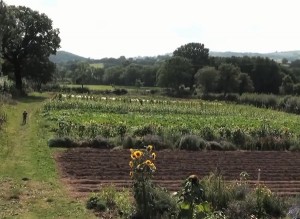 Campaign to develop the Community-Supported Agriculture (CSA) Network in the UK
Campaign to develop the Community-Supported Agriculture (CSA) Network in the UK
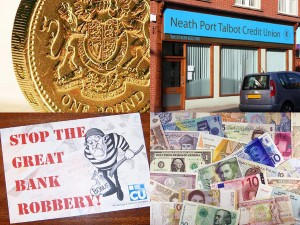 If you’re not exactly ‘time-rich’, here’s how you can change society with your money as well as your actions
If you’re not exactly ‘time-rich’, here’s how you can change society with your money as well as your actions
 Suggested campaign to remove unnecessary regulations from independent businesses
Suggested campaign to remove unnecessary regulations from independent businesses
 The number of people with allergies is rising rapidly; but 10 times as many people believe that they have allergies, when in fact they don’t
The number of people with allergies is rising rapidly; but 10 times as many people believe that they have allergies, when in fact they don’t
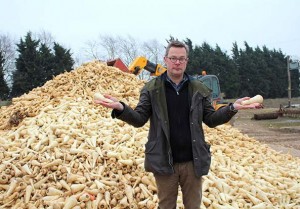 Well done for fighting food waste, Hugh; but let’s take it a step further
Well done for fighting food waste, Hugh; but let’s take it a step further
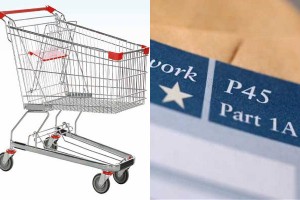 How superstores destroy jobs and local resilience
How superstores destroy jobs and local resilience
 How we got olive oil from a small farm in Portugal brought over in a sailboat by a co-operative based in Brighton – and how you can do the same
How we got olive oil from a small farm in Portugal brought over in a sailboat by a co-operative based in Brighton – and how you can do the same
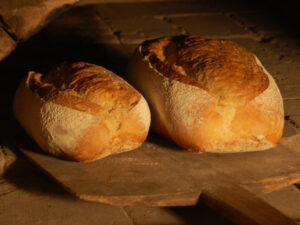 Breadmaking
Breadmaking
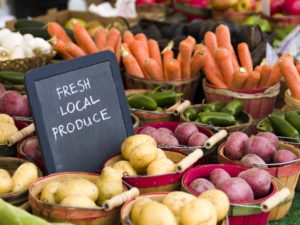 Farmers' markets / direct farm sales
Farmers' markets / direct farm sales
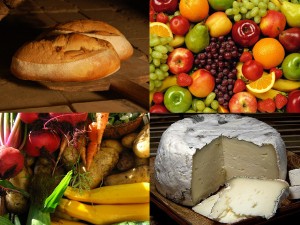 Low-impact food & drink
Low-impact food & drink
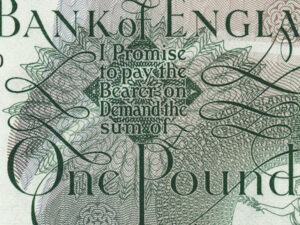 Low-impact money
Low-impact money
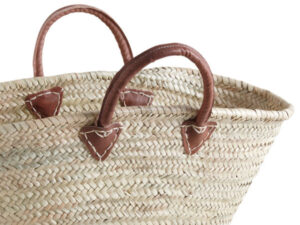 Low-impact shopping
Low-impact shopping
 Commons economy
Commons economy
 Self-employment
Self-employment
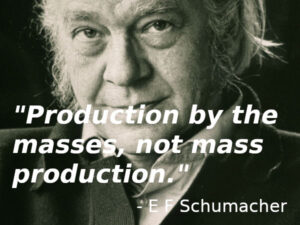 Small is beautiful
Small is beautiful
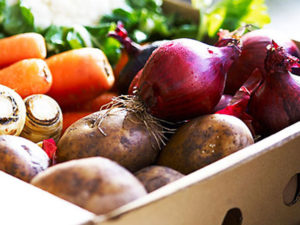 Veg box schemes
Veg box schemes


